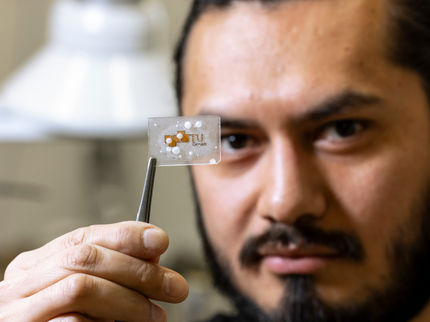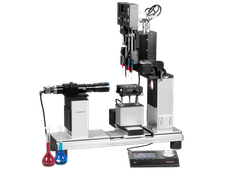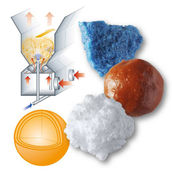BASF to investigate renewable resource based plastics
Cooperation with U.S. biotechnology company Metabolix
Advertisement
BASF Aktiengesellschaft, Ludwigshafen, Germany, and Metabolix, Inc., Cambridge, Massachusetts, have entered into a research collaboration agreement on plastics made from renewable resources. Under the terms of the initial one-year agreement, Metabolix will produce polyester plastics from sugar using fermentation technology and supply BASF with pilot-scale sample quantities. BASF's polymer research division will investigate the materials technology and processing properties of the products. The terms of the deal include extensive information-sharing between the two partners; financial terms were not disclosed.
Polyhydroxyalkanoate polyesters (PHAs) are a versatile family of biodegradable plastics made from renewable resources. They have a very broad range of applications and may be used for the manufacture of plastic films, fibers, thermoplastic materials, and dispersions for adhesive raw materials or coatings.
The collaborative deal gives BASF the opportunity to gain experience with a technology that is still in its infancy. "The manufacture of plastics using microorganisms holds huge future potential," says BASF polymer research scientist Dr. Dietrich Scherzer, who is leading the project. "In the medium to long term, renewable resources are an attractive alternative to petrochemical raw materials - also from an economic point of view."
Most read news
Topics
Organizations
Other news from the department business & finance
These products might interest you

Get the chemical industry in your inbox
By submitting this form you agree that LUMITOS AG will send you the newsletter(s) selected above by email. Your data will not be passed on to third parties. Your data will be stored and processed in accordance with our data protection regulations. LUMITOS may contact you by email for the purpose of advertising or market and opinion surveys. You can revoke your consent at any time without giving reasons to LUMITOS AG, Ernst-Augustin-Str. 2, 12489 Berlin, Germany or by e-mail at revoke@lumitos.com with effect for the future. In addition, each email contains a link to unsubscribe from the corresponding newsletter.






























































